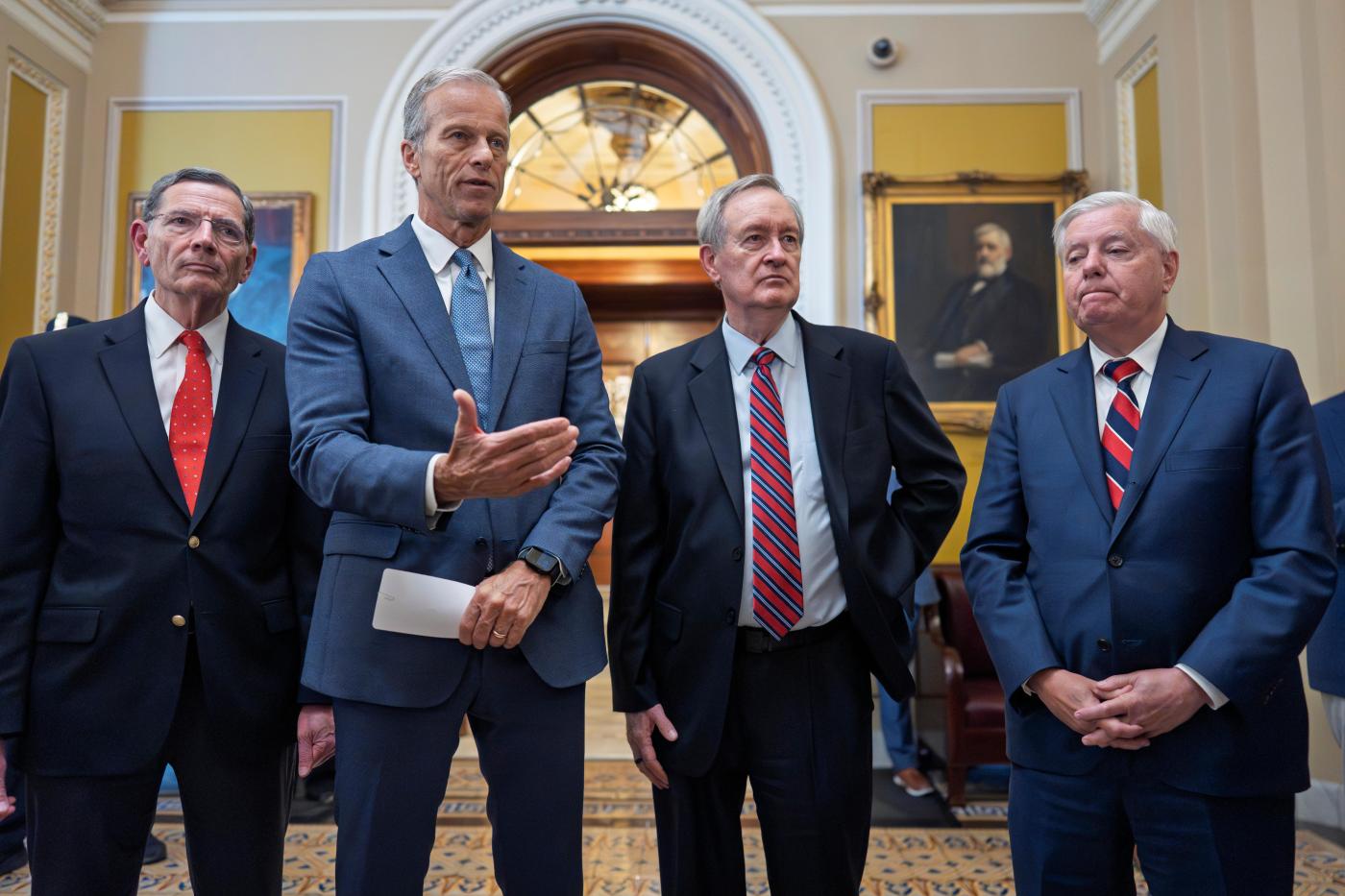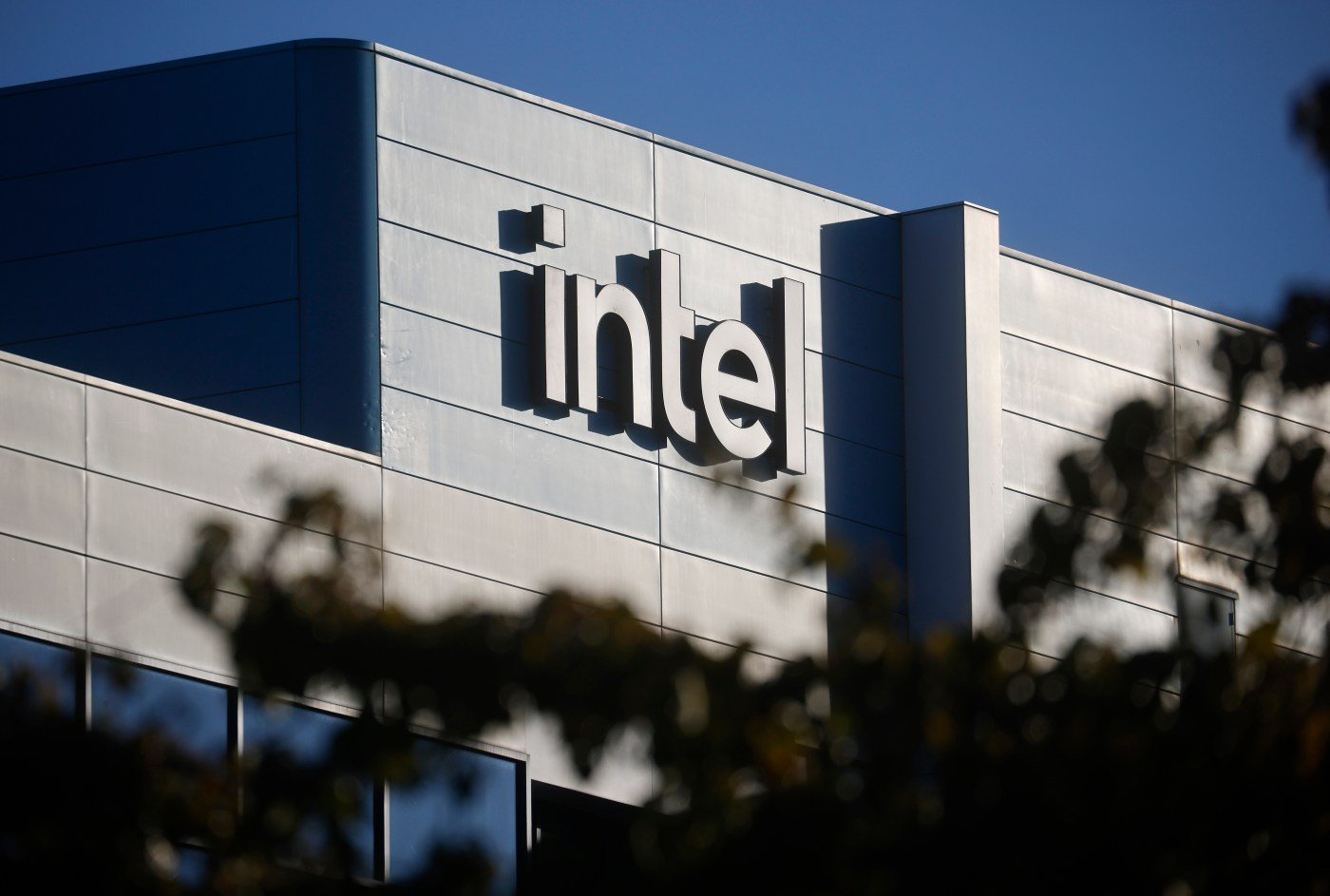Bay Area Democratic leaders on Tuesday blasted the just-passed tax and policy bill of President Donald Trump as a gift to rich people at the cost of everyday Americans that would add trillions of dollars to America’s national debt.
The White House, meanwhile, said the bill, if approved by the Republican-majority House of Representatives, would bring lower taxes, bigger paychecks, tighter borders and stronger national security.
“Americans will face harmful cuts to their health care and food assistance,” South Bay Democratic Rep. Zoe Lofgren said Tuesday. “In California, over 2 million people alone would lose access to their health care. Hospitals and clinics will be hit, and some will be forced to close if House Republicans agree to this travesty.”
Congressman Mark DeSaulnier attends a Memorial Day ceremony in Clayton on Monday, May 27, 2024. (Jose Carlos Fajardo/Bay Area News Group)
East Bay Democratic Rep. Mark DeSaulnier said in a social media post Tuesday morning that he was on his way to Washington “to do whatever I can to stand in the way of this bill.”
Referring to a Congressional Budget Office estimate, DeSaulnier said the bill’s cuts to Medicaid — which provides health care for some 70 million low-income, elderly and disabled Americans — and funding for the Affordable Care Act would strip health care from 17 million Americans in coming years, “to give tax breaks to the ultrawealthy.”
The bill would make permanent many of the tax cuts passed in Trump’s first term.
Many business groups quickly expressed approval of the Senate vote.
“The tax provisions included in this bill will not only drive economic growth and sharpen America’s competitive edge but also put more money in workers’ pockets, increasing prosperity in communities across the country,” U.S. Chamber of Commerce chief policy officer Neil Bradley said.
Non-partisan research group The Tax Foundation estimated Monday that the bill would slash federal tax revenue by $5 trillion by 2034. Projected economic growth of 1.2% would pay for about a fifth of the tax cuts, shrinking the tax loss to $4 trillion, the group reported.
Former House speaker and San Francisco Democratic Rep. Nancy Pelosi, in a social media post Tuesday morning, condemned the “Republicans’ One Big, Ugly Bill.”
“It strips millions of health care, takes food away from children, and plunges our nation $4 trillion deeper in debt to give tax breaks to billionaires,” Pelosi said. “House Democrats will fight to stop it.”
Former House Speaker Nancy Pelosi at the monthly Community Volunteer Workday event at the National AIDS Memorial Grove in San Francisco on Saturday, June 17, 2023. (Ray Chavez/Bay Area News Group)
The Budget Lab at Yale University estimated Monday that effects from the bill on taxes, Medicaid and spending on the federal SNAP food stamps program would cost the lowest-earning 20% of Americans about $700 a year, and boost incomes for people making $185,000 by about $9,000, and for people making $3.3 million by about $104,000.
South Bay Democratic Rep. Sam Liccardo, former mayor of San Jose, said in a social media post Monday that the bill, by eliminating federal clean-energy programs, would inflate utility bills and make the transition to solar power — seen as vital for combating climate change — more expensive.
However, American Petroleum Institute CEO Mike Sommers applauded the Senate, saying the bill would “help usher in a new era of energy dominance by unlocking opportunities for investment, opening lease sales and expanding access to oil and natural gas development.”
Francis Creighton, CEO of Wine & Spirits Wholesalers of America, said the bill would help “family-owned wholesalers to reinvest, compete, and thrive.”
Liccardo in an interview Tuesday described the proposed legislation as “the one big bloated borrowing bill that leaves our children and grandchildren nearly $4 trillion more indebted … and gives us the added pain of gutting lifelines for health, nutrition and education.”
The bill’s provision to shift more costs from the federal SNAP food stamp program to states had been opposed by Democrat-led states, including California. Gov. Gavin Newsom joined two dozen other governors in signing a June 24 letter to House and Senate leaders saying states would need to spend millions or billions of dollars, or quit the SNAP program, which benefits more than 40 million people, including about 14% of Californians.
“Hunger and poverty will increase, children and adults will get sicker, grocery stores in rural areas will struggle to stay open, people in agriculture and the food industry will lose jobs, and state and local economies will suffer,” the letter said.
U.S. Representative Sam Liccardo speaks during a press conference in San Jose on Tuesday, March 18, 2025. (Shae Hammond/Bay Area News Group)
Removed from the bill was a controversial provision to ban states from regulating artificial intelligence for 10 years. Billionaire Silicon Valley venture capitalist David Sacks, who is Trump’s technology adviser, had argued that unrestricted AI development would increase productivity and lower the debt. But the proposed regulatory moratorium, though seen as a boon to Silicon Valley, faced substantial opposition, including from Trump loyalist and Georgia Republican Rep. Marjorie Taylor Greene, who called it “a gift to Big Tech and a disaster for American workers and states’ rights.”
Related Articles
Hundreds of Bay Area tech layoffs jolt TurboTax maker as cuts persist
Berkeley council adopts balanced budget in split vote
Fed vs. Trump on tariffs impact will soon be put to test
California is still the world’s 4th-largest economy
Wall Street is split as Tesla and tech drop while most other US stocks climb
Liccardo said Congress has for decades failed to impose meaningful regulation on the tech industry. Pre-empting states’ abilities to adopt their own regulations remains necessary, to ensure companies don’t have to “navigate 50 different sets of rules to determine what is or is not a permissible bit of code to insert in an algorithm,” Liccardo said.
Among the most powerful opponents of the bill is former Trump adviser Elon Musk, CEO of Tesla and SpaceX and the world’s richest man, who attacked the bill’s elimination of support for wind and solar energy and imposition of a tax on future projects. Musk also took aim at elected officials over the fiscal effects expected from the bill.
“Every member of Congress who campaigned on reducing government spending and then immediately voted for the biggest debt increase in history should hang their head in shame!” Musk said Monday on social media. “And they will lose their primary next year if it is the last thing I do on this Earth.”





